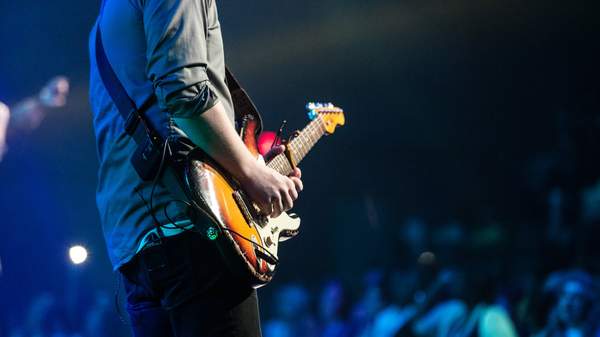Overview
It was announced this week that the City of Sydney would be continuing their efforts to grow Sydney's nighttime economy. The council said they would be committing funds and support to the State Government, local businesses, artists and performers in order to facilitate more live music and performance in town.
The argument could be made, however, that it's not red tape and lack of funds that's the major contributor to the slow decline of live music after dark, and the culprit is really the state government's lockout laws that have forced many major music venues to shut down. It would appear that the City of Sydney is aware of this, as their Live Music and Performance February 2017 status report would illuminate.
The report covers all the initiatives in the City's June 2014 Live Music and Performance Action Plan — which identified that live music, unsurprisingly, brings significant cashflow to the local economy (we're talking $353 million in 2016 alone) — and details on their progress. February marked the halfway point of the plan, and the report states that 82 percent of projects are either already underway or completed.
One of the more interesting aspects of the report is its repeated emphasis on "working collaboratively with the NSW Government". While this is to be expected, the report also makes reference to the recent extension of trading hours for venues, saying "this measure, while an incremental and symbolic move in the right direction, is not at all sufficient and we will continue to advocate for more to be done". The report also makes mention of the impact the laws have had on "city reputation and audience motivation", and how these impacts have "required more focus on this work [than] originally anticipated".
Research conducted by the City shows that they valued the contribution made to Sydney's economy by live music at $353 million in 2016 alone, and the February Status Report would, we think, show that the lockout laws are stopping that figure from being substantially higher.
One of the 29 actions that have already been implemented, and is mentioned in the status report, is a "pilot research study into alcohol consumption in live music venues", which is currently being finalised — results of this study are sure to have an impact on the State Government's stance on the lockout laws, as this study by Dr Anne Fox, published in 2015. It shows that live music in venues tends to lower alcohol-related incidents (although, it must be noted that the research was initiated by Lion, which owns alcohol brands like Hahn and Little Creatures). Or, as Kerri Glasscock, festival director and CEO of Sydney Fringe, told The Sydney Morning Herald in February last year, "people come in and have a drink, then bar sales drop while the band is performing".
Glasscock also said in this week's announcement that venues around Sydney would be "feeling the pressure ease" with the City of Sydney's Action Plan. The real strain of state legislation might not be lifted overnight, but the next action item in the February status report is to deliver regulatory reform around devlopment and noise that will "help improve trading conditions for venues", which is another step in a positive direction.
You can read the full action plan here and the status update here.
